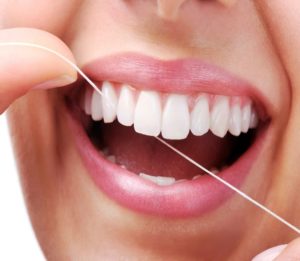Spotlight on Preventive Dentistry: Building a Foundation for Long-Term Oral Health
Oral health is a crucial part of overall well-being, yet many people overlook its importance until they experience pain or discomfort. Preventive dentistry is a proactive approach that focuses on maintaining healthy teeth and gums, helping individuals avoid costly and painful dental procedures. By adopting preventive measures, individuals can build a strong foundation for long-term oral health, reducing the risk of cavities, gum disease, and other dental issues.
What Is Preventive Dentistry?
Preventive dentistry encompasses a variety of practices aimed at keeping teeth and gums healthy. It includes regular dental check-ups, professional cleanings, fluoride treatments, dental sealants, and good oral hygiene habits. The goal is to prevent oral health problems before they develop, minimizing the need for extensive dental treatments later in life.
The foundation of preventive dentistry rests on daily oral care, combined with routine professional assessments and interventions. This proactive approach benefits individuals of all ages, from young children developing their first teeth to seniors maintaining their natural smiles.
Key Components of Preventive Dentistry
Maintaining a consistent oral hygiene routine is the first step toward preventive dentistry. This includes:
- Brushing: Brushing twice a day with fluoride toothpaste removes plaque, prevents cavities, and keeps breath fresh.
- Flossing: Flossing daily removes plaque and food particles from between teeth, reducing the risk of gum disease and cavities in hard-to-reach areas.
- Mouthwash: Using an antibacterial mouthwash can help reduce plaque buildup and fight gum disease.
- Regular Dental Check-Ups and Cleanings
Professional dental exams and cleanings are essential for maintaining oral health. Dentists and hygienists can detect early signs of decay, gum disease, and other oral issues that may not be visible to the untrained eye. Professional cleanings remove plaque and tartar buildup that regular brushing and flossing may miss, helping to prevent cavities and gum inflammation.
- Fluoride Treatments
Fluoride is a naturally occurring mineral that strengthens tooth enamel and helps prevent cavities. These treatments, particularly for children and those prone to decay, can provide critical protection against cavities.
- Dental Sealants
Another key service we offer is dental sealants. These thin, protective coatings are applied to the chewing surfaces of molars to prevent bacteria and food particles from settling into deep grooves, reducing the risk of cavities. Although primarily used for children and teens, adults can benefit from them too.
- Balanced Diet and Nutrition
A healthy diet plays a vital role in oral health. Consuming a balanced diet rich in vitamins and minerals helps strengthen teeth and gums. Key dietary recommendations include:
- Limiting sugary and acidic foods that contribute to tooth decay.
- Eating calcium-rich foods such as dairy products, leafy greens, and almonds to support strong teeth.
- Drinking plenty of water to rinse away food particles and maintain saliva production, which naturally protects against cavities.
- Avoiding Harmful Habits
Certain habits can negatively impact oral health. Avoiding the following can contribute to long-term dental wellness:
- Smoking and tobacco use, which increase the risk of gum disease, tooth decay, and oral cancer.
- Excessive alcohol consumption, which can dry out the mouth and lead to tooth erosion.
- Teeth grinding (bruxism), which can wear down enamel and cause jaw pain. A dentist may recommend a custom nightguard to prevent damage.
The Role of Preventive Dentistry in Different Life Stages
For Children and Adolescents
Establishing good oral hygiene habits early sets the stage for lifelong dental health. Pediatric dentists emphasize preventive measures such as fluoride treatments and dental sealants to protect young teeth from cavities. Regular check-ups help monitor proper tooth development and address any issues promptly.
For Adults
Preventive dentistry is essential for maintaining a healthy smile and avoiding costly treatments. Regular dental visits, combined with daily hygiene and a balanced diet, can help adults prevent cavities, gum disease, and tooth loss.
For Seniors
Aging presents unique dental challenges, including increased risk of dry mouth, gum disease, and tooth loss. Preventive dentistry helps seniors maintain their natural teeth for as long as possible, ensuring proper nutrition and overall well-being. Regular dental visits can also detect early signs of oral cancer and other age-related conditions.
The Connection Between Oral Health and Overall Health
Oral health is closely linked to overall health. Research has shown that poor oral hygiene can contribute to systemic conditions such as:
- Heart disease: Bacteria from gum disease can enter the bloodstream, increasing the risk of heart disease and stroke.
- Diabetes: Individuals with diabetes are more susceptible to gum disease, which can, in turn, make it harder to control blood sugar levels.
- Respiratory infections: Bacteria from the mouth can be inhaled into the lungs, potentially leading to pneumonia and other respiratory infections.
- Pregnancy complications: Poor oral health has been linked to preterm birth and low birth weight in infants.
Common Myths About Preventive Dentistry
Myth 1: You Only Need to See a Dentist If You Have a Problem
Reality: Regular dental visits help prevent problems before they arise. Waiting until you experience pain or discomfort often leads to more extensive and expensive treatments.
Myth 2: Flossing Isn’t Necessary
Reality: Flossing removes plaque and food particles from between teeth, reducing the risk of cavities and gum disease. It’s a crucial part of oral hygiene.
Myth 3: Baby Teeth Aren’t Important Since They Fall Out Anyway
Reality: Healthy baby teeth are essential for speech development, proper chewing, and guiding permanent teeth into place. Neglecting them can lead to complications later on.
Myth 4: Harder Brushing is Better
Reality: Brushing too hard can damage enamel and irritate gums. A gentle, circular motion with a soft-bristled brush is the most effective technique.
The Future of Preventive Dentistry
Advancements in dental technology continue to improve preventive dentistry. Innovations such as digital X-rays, laser treatments, and AI-powered diagnostics allow for early detection and more effective prevention of oral health issues.
Preventive dentistry is the key to maintaining a healthy smile and avoiding painful, costly dental procedures. By practicing good oral hygiene, attending regular dental check-ups, and making healthy lifestyle choices, individuals can build a strong foundation for long-term oral health. Prioritizing preventive care today leads to a lifetime of benefits, ensuring a confident, healthy smile for years to come. Call Carlyle Dentistry at (252) 522-1777 today!



